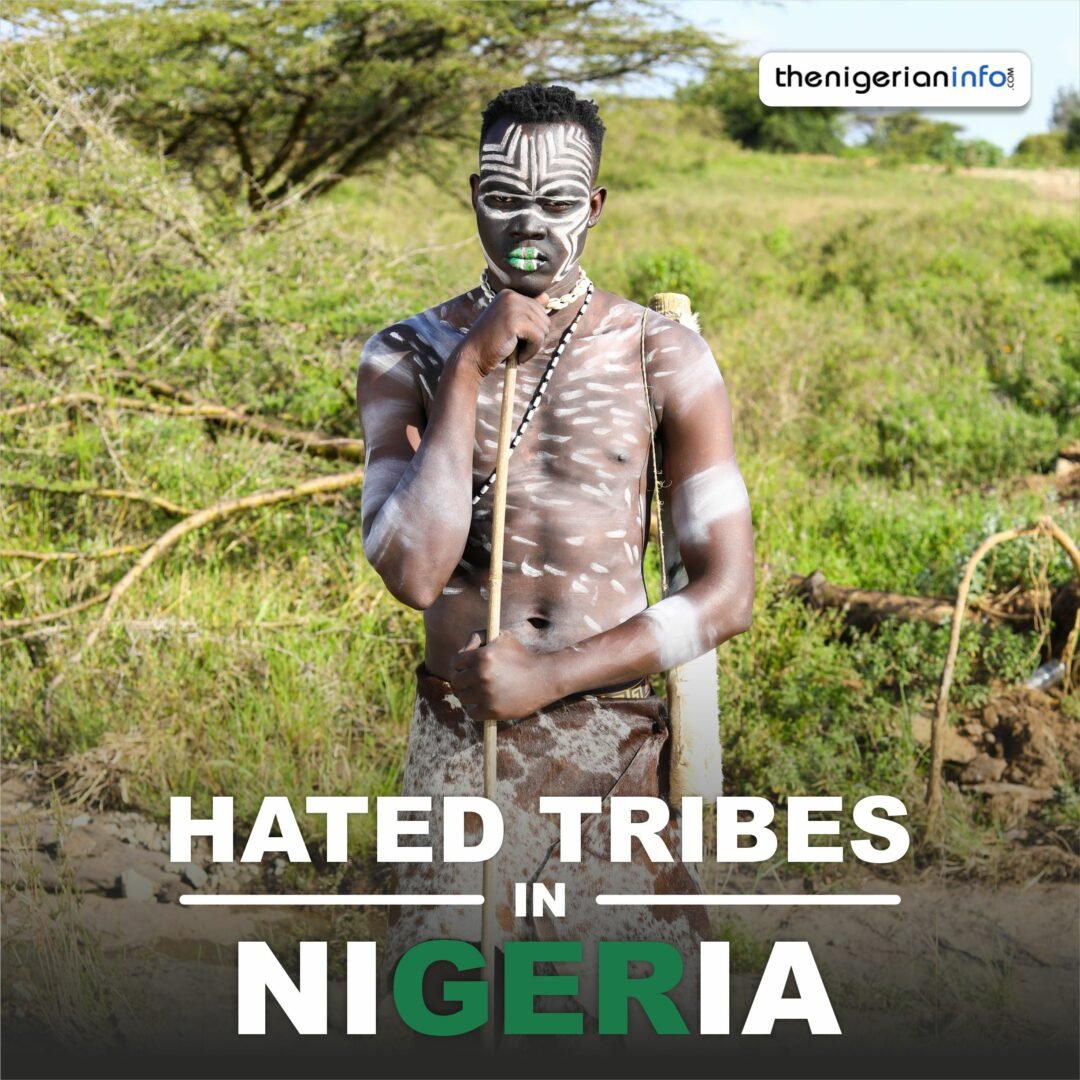Nigeria, known as the “Giant of Africa,” is a country blessed with diverse ethnic groups, each with its unique cultural heritage and traditions. However, the country has also witnessed tribal conflicts and tensions that have deep historical roots. Understanding the dynamics of these conflicts is crucial for fostering unity and peaceful coexistence among its people.

Hated Tribes In Nigeria
1.Fulani Tribe
The Fulani tribe, also known as the Fulbe, is one of Nigeria’s largest ethnic groups. With a rich history dating back centuries, they are primarily pastoralists who practice nomadic herding. However, tensions have arisen due to clashes between Fulani herders and farmers over land and resources. These conflicts have resulted in violence and loss of lives, sparking debates about resource control and peaceful coexistence. Read Strongest Tribes In Nigeria
2. Ogoni Tribe
The Ogoni tribe is located in the Niger Delta region, known for its rich oil reserves. The Ogoni people have a vibrant culture and have made significant contributions to Nigeria’s arts and literature. However, their struggle for self-determination and resource control has caused tensions. Environmental degradation resulting from oil exploration and activism led by prominent activist Ken Saro-Wiwa have further fueled conflicts and demands for justice.
3. Igbo Tribe
The Igbo tribe, situated in the southeastern part of Nigeria, has a rich cultural heritage and a history of entrepreneurship and innovation. They have made significant contributions to Nigeria’s economic and political landscape. However, historical events like the Biafra secessionist movement and the Nigerian Civil War have left deep scars, leading to ongoing tensions and animosity towards the Igbo tribe. Economic competition and stereotypes have also contributed to these conflicts.
4. Hausa Tribe
The Hausa tribe, predominantly located in Northern Nigeria, is one of the largest ethnic groups in the country. They have a rich cultural heritage, known for their vibrant traditional attire, music, and art. However, conflicts arise due to political dominance and power struggles between different ethnic groups. Religious and ideological differences have also fueled tensions in certain regions.
5. Ijaw Tribe
The Ijaw tribe is predominantly found in the Niger Delta region, known for its oil wealth. The Ijaw people have a unique culture and have been at the forefront of the struggle for resource control and environmental justice in the region. Tensions arise from clashes with other tribes and conflicts over resource allocation, leading to inter-ethnic tensions and violence.
6. Yoruba Tribe
The Yoruba tribe, located in southwestern Nigeria, boasts a rich cultural heritage and has made significant contributions to arts, music, and literature. They have a history of vibrant kingdoms and dynasties. However, political rivalries and power struggles among Yoruba leaders have caused inter-tribal tensions. Land disputes and boundary conflicts have also contributed to ongoing conflicts in some areas.
7. Edo Tribe
The Edo tribe, known for the ancient Benin Kingdom, has a rich historical significance in Nigeria. They have made notable contributions to the country’s socio-economic development. However, conflicts arise from political disputes and power struggles, leading to marginalization and tensions within the tribe. Issues of resource allocation and representation have also fueled tensions.
8. Esan Tribe
The Esan tribe, located in Edo State, has a unique cultural heritage and traditions. They have contributed significantly to the socio-economic development of Nigeria, particularly in the fields of education and civil service. However, political marginalization and underrepresentation have fueled conflicts within the tribe. Land disputes and inter-tribal conflicts further contribute to tensions. Read also Top 10 Biggest Churches In Nigeria
9. Ebira Tribe
The Ebira tribe, primarily located in Kogi State, has a rich cultural heritage and traditions. They have played a vital role in Nigeria’s historical and political landscape. However, conflicts arise due to political disputes and power struggles within the tribe. Marginalization and socio-economic challenges exacerbate these tensions, leading to inter-tribal conflicts and divisions.
10. Nupe Tribe
The Nupe tribe, situated primarily in Niger State, holds significant cultural significance in Nigeria. With a long history and contributions to Nigerian society, the Nupe people have played a vital role in the country’s development. However, conflicts arise from land disputes and inter-tribal conflicts, as well as political rivalries and marginalization. These tensions hamper unity and peaceful coexistence among the various tribes in the region.
Conclusion
The diverse tribes in Nigeria contribute to the country’s cultural richness and heritage. However, historical events, political rivalries, resource allocation issues, and marginalization have led to tensions and conflicts among these tribes. It is crucial to promote dialogue, understanding, and peaceful coexistence among Nigeria’s diverse ethnic groups.
Efforts should be made to address the root causes of inter-tribal conflicts, such as resource control, political power struggles, and socio-economic challenges. The government, community leaders, and civil society organizations must work together to promote unity and reconciliation among the tribes. Embracing diversity and fostering inclusivity are essential for a harmonious and prosperous Nigeria.
Education and awareness programs should be implemented to dispel stereotypes and promote understanding among different tribes. Platforms for dialogue and conflict resolution should be created to address grievances and find peaceful solutions to inter-tribal conflicts. Additionally, promoting economic opportunities and equitable resource distribution can help alleviate tensions arising from competition and marginalization.